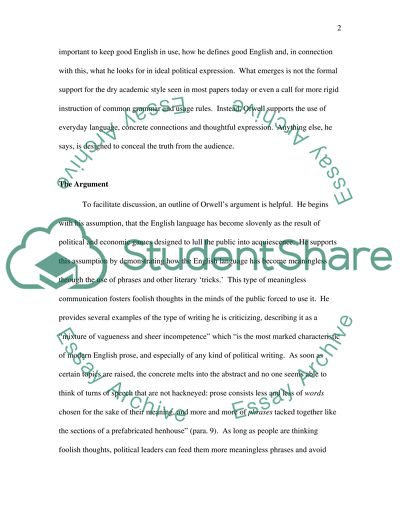Cite this document
(“George Orwells concept of the ideal writer Essay”, n.d.)
Retrieved from https://studentshare.org/literature/1544375-george-orwells-concept-of-the-ideal-writer
Retrieved from https://studentshare.org/literature/1544375-george-orwells-concept-of-the-ideal-writer
(George Orwells Concept of the Ideal Writer Essay)
https://studentshare.org/literature/1544375-george-orwells-concept-of-the-ideal-writer.
https://studentshare.org/literature/1544375-george-orwells-concept-of-the-ideal-writer.
“George Orwells Concept of the Ideal Writer Essay”, n.d. https://studentshare.org/literature/1544375-george-orwells-concept-of-the-ideal-writer.


